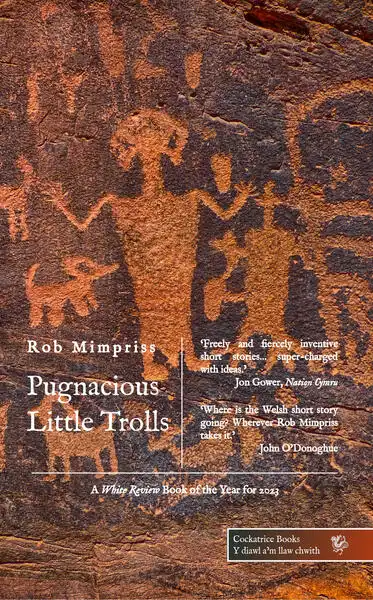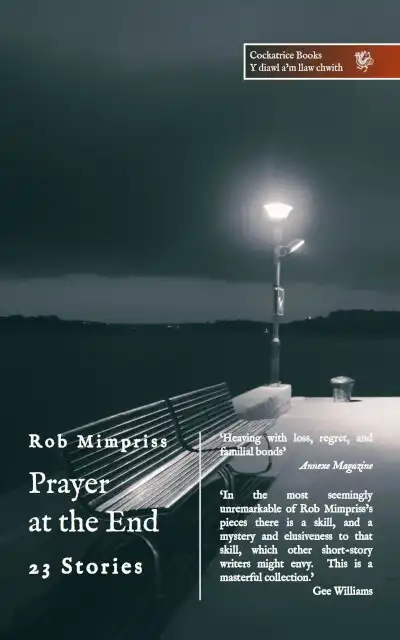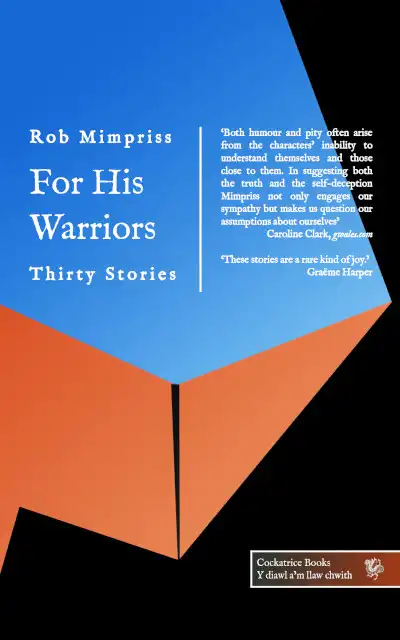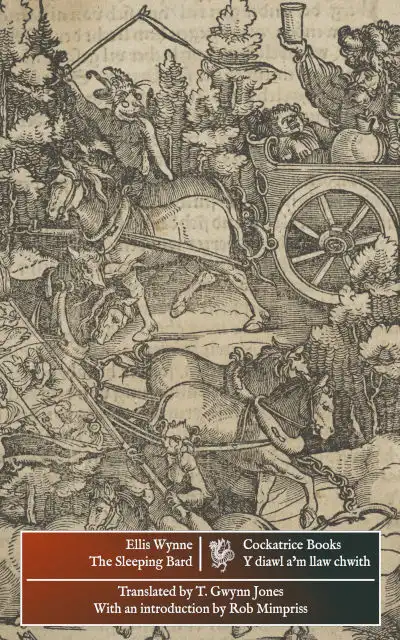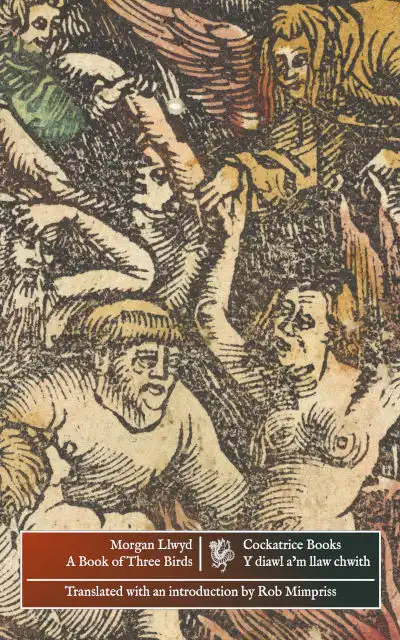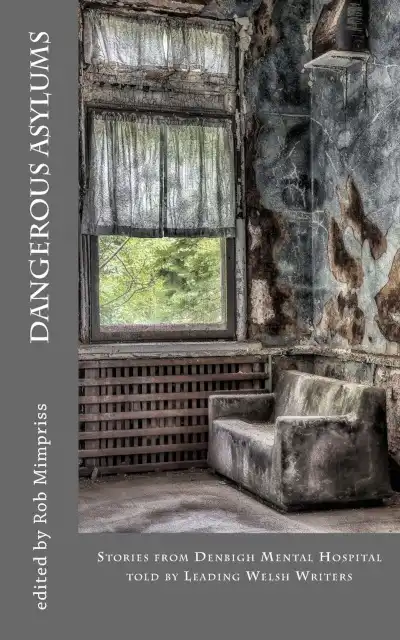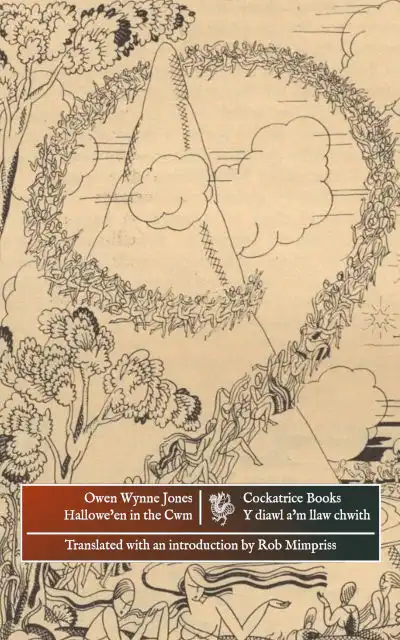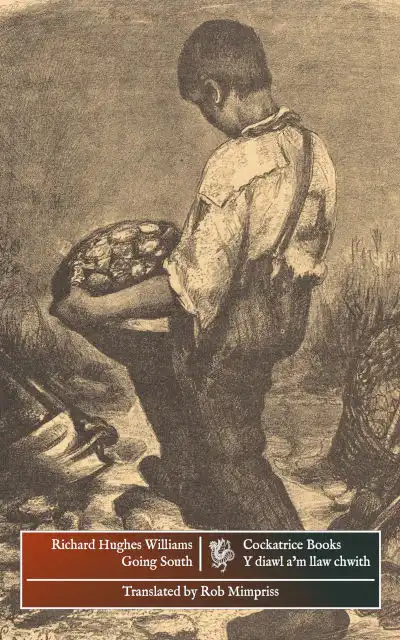Dandelion, directed by Michael Kelligan, with performances by Sharon Morgan, Anthony Leader, Olwen Rees and Lynn Hunter, was performed at Y Galeri, Caernarfon, on 24th September 2013. This review appeared in New Welsh Review 101 (Autumn 2013) online.
Patrick Jones is a serious writer of ambitious themes. His work does not bear such themes lightly. I tweeted about his play, Dandelion, performed at Galeri Caernarfon on Tuesday 24th, and unluckily for both of us he noticed. He didn’t like my wry comment, and became abusive.
I don’t like being sworn at or insulted much, but I also don’t like being preached at. Patrick Jones in his fury said that writing is serious, not a game. Oscar Wilde might tentatively disagree, and Cyril Connolly treats serious and frivolous writers with equal respect, but there are mixtures and places between, and in any case my point was that I benefit less from being spoon-fed with insights and themes than from teasing them out of the characters’ lives. Dandelion does the thinking for you, and what it thinks isn’t all that profound. God doesn’t exist (but nobody really knows). Life is like Deal or No Deal because you don’t know what’s in the box. The kindest defence of such remarks might be that rather than pointing to the themes they indicate the characters’ attempts to find meaning.
Just four actors hold the stage for ninety minutes. The set indicates a hospice dayroom, ‘this waiting room for the dying,’ where the characters argue about books and God or taunt each other with their loneliness, and where scuffles break out over the TV remote. The leader, the Randle Patrick McMurphy of this group, finds the dayroom stifling and tries to organise a walk, but there are no trained staff to supervise it. Patrick Jones explores the pettiness, boredom and expectation of death, but as theatre it is a bit dull, and the attempts to keep it from being dull are a bit programmatic and obvious. A really great writer might give us characters so real that they would grip us within such a limited scope. But on the other hand a really good writer might prefer to expand the play, to draw on the lives of the doctors and nurses, and draw tension between contrasting scenes, so I think it becomes a question of which kind of writer Patrick Jones hopes to be. There is no shame in not being great. E.M. Forster denied that he was a great writer, and Chekhov said he was always afraid that his short stories would bore his readers.
Patrick Jones also seems not entirely sure how to approach his characters. Ernest is the most complicated, a bit of a lad in his youth and still up for fun, who understands that life and death are both meaningless, and wants his fellow patients to enjoy their last days on earth. Mrs Hartson gets annoyed with him because all she wants is peace and quiet to watch TV. Mrs Hartson is a good comic creation, and her actress plays her with a glint in her eye, but Mary (I think it is Mary), with her long and rapturous monologues about beauty and flowers, seems part of a different play: not the good play, but the great one. Between scenes the dead are wheeled away until only Ernest and Mrs Hartson are left. After nearly ninety minutes the play finally grips: can these two characters who like each other so little find common ground in the face of death? He challenges her to explain her hostility, her lack of visitors, her obsession with the TV, and she accepts his challenge. She was in the Jehovah’s Witnesses, she explains, but she left because of all the hypocrisy and the abuses of power. Her family rejected her, and she had no company but the TV. The two survivors are finally friends, and the change is shown with real humour and delicacy as Ernest offers to do what he has always resisted, to turn on the TV. Just before the lights fade the phone rings for a character who is already dead.
Perhaps by now I ought to be satisfied by the play, and I am, nearly, and I admire it in parts. But even the ending does not quite feel right. It doesn’t feel quite human, as though the author is thinking in boilerpplate terms about dramatic reversals and revelations, and as though Mrs Hartson is still not a real person to him. Moreover I’m dissatisfied because I know current and former Jehovah’s Witnesses, not all of whom were ostracised for leaving, and because twenty years ago I was in a cult. It was exploitative and controlling and did great harm to its followers, but there were only a few actual hypocrites, and even most of its leaders didn’t like having power. I feel that Dandelion gives us headline news on its themes but can’t do the human complexities.
Apart from the question of how great the play is none of this need matter, for there is no harm in different opinions. Different audiences and readers have different needs, and those needs change with maturity, but after a tweet in which I hinted at what I’ve tried to explain in this essay, the author subjected me to repeated and vociferous abuse. There is no evidence that he knew of my writing. But he knew me for a ‘cunt.’ A ‘twat.’ A ‘fucking prick’ and a ‘tweetawanker.’ ‘Wormy,’ ‘weasely,’ ‘cowardly’ and afraid of true art: all this in a seeming attempt to intimidate and silence a paying theatre-goer. A friend of mine who read the Twitter feed thinks that he really is ‘rather a special little snowflake.’
Patrick Jones probably knows well what I know more slightly, that it is painful to be vilified for what we write. His tweets caused me a few days of stress, and I have endured condemnation as a writer in the past from people of Christian conviction.
There is also a difference between us. Before the publication of Darkness is Where the Stars Are, Patrick Jones sent the anti-art campaign group Christian Voice an openly insulting letter, with the apparent intention of provoking a response that he hoped to exploit. He made a choice to involve genuinely quite nasty and dangerous fundamentalists in the lives of readers and booksellers in Wales. By contrast I did not tweet to Patrick Jones, and said nothing that could reasonably anger him. What he gained by deliberately provoking Christian Voice was abuse and inconvenience and publicity, a great deal of undeserved distress for his publisher, and the endorsement of leading atheist intellectuals in the UK. What I gain by accidentally provoking Patrick Jones is abuse from a rather over-inflated writer, an unpaid spot on the New Welsh Review website, and any modest attention given to this essay.




